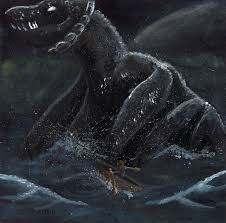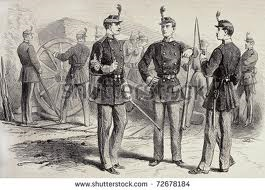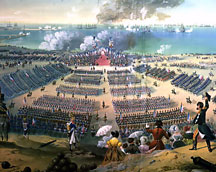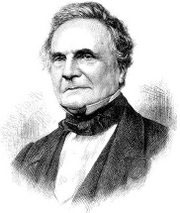 After several weeks of being unable to publish due to the current world wide emergency, the Times is pleased to resume circulation.
After several weeks of being unable to publish due to the current world wide emergency, the Times is pleased to resume circulation.
While we are all aware of the extend of the devastation wrought throughout the Kingdom and Empire, we thought to bring you an occasional series depicting life and the British spirit as we weather this time of wasting.
Our first exemplar is from a journal found in a rural village in Oxforshire. We believe that the published portrait photograph is of the author.
*****
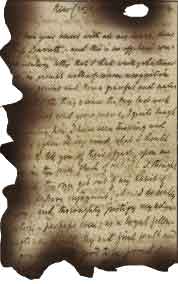
. Burnt journal page describing the devastation of a rural village in Oxfordshire. The author is believed to be the daughter of a local squire. She, her mother and sibling are believed to have sheltered from the depredations of the dragons around Oxford in the ruined basement of a local shop. Their fate is unknown. – image courtesy of eighteenseventyeight.com
The darkness is coming again and, though I struggle to hide it, I am sore afraid. They are more active at night and already I feel as if I can hear their wings and feel their hot breath scorching the ground. Mother went out to forage for food. It seems like hours ago and I fear for her; if not from the beasts then from those other survivors who, just a short while ago, were our neighbors. The dragons have not only laid waste to our once idyllic village but also to the souls of many therein.
Where once there was kindness; now there is spite.
Where once there was sharing; now there is mean hording.
Where once there was light; now there is only dark.
I am resigned to my fate, whatever it may be, but I fear most for Robbie. He has but four years and yet he knows the anguish that we all share. Most days he sits quietly, rearranging small bits of rubble in our underground shelter. He used to hum softly to himself but, since the day when one of the young ones heard him, he no longer sings, nor hums, nor cries. Shadows passing the entrance above cause him to freeze in terror and scurry to the smallest recesses at the back of the shelter.
How I secretly envy him the ability to shrink so far back. I fear that one day the rending claws will reach me unawares and I will meet my end.
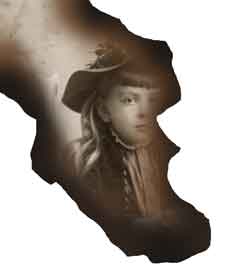
Photo thought to be of the unknown author of the journal. Found among the rubble of the shelter where the journal was found by searchers. – image courtesy of 19thcentury.tumblr.com
I ponder the reason for all our misery. The vicar, while he lived, told us to trust in God’s mercy. He said, whatever the genesis of this evil, goodness would prevail in the end. That good man was taken from among us as he carried out the duties of his office, visiting and comforting the terrified and injured.
At his passing, the curate took over as the spiritual head of our community. He is a nervous man, filled with proud resentment and ambition. Before the wasting, he was never loath to make it known how he deserved more rapid advancement and a vicarage of his own. Small wonder that the bishop kept him in his current post! What a shame the lesson on humility did not take root within him.
It was the curate who fanned the flames of fear when he said that this despoilment is God’s judgment on the wickedness of man. For, truly, as the Lord said, who among us is without sin? Each villager can enumerate countless transgressions that make him or her the object of God’s wrath.
The curate believes that the Almighty has visited this terror upon us because men of science dared tread upon his province. He said that God threw wide the gates of Hell to release his righteous scourge upon all those who have grievously sinned. But surely this cannot be since the beasts appeared not from the bowels of the Earth as he said but from the curious rings of light in the sky.
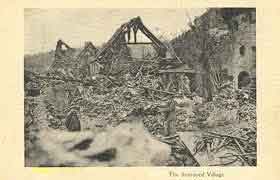
The rubble of Little Holding in Oxfordshire. Dragons have left no structure untouched and the residents are all either fled or deceased. Site of the journal found in a destroyed cellar. image courtesy of celebrateboston.com
Yet for all his supposed piety, he huddles in his shelter among the crypts of squires and lords long gone and demands that those seeking succor and the Sacrament come to him. He claims that it is so that they might be protected by hallowed ground but his demands drip with hypocritical irony. How I long for our dear old vicar who loved and shepherded us so well.
When I asked Father about what the curate said, he replied that God is all loving and that he would never visit such a horror upon both the wicked and the righteous. He reminded me of the story from Exodus when God warned the Israelites to mark their door posts in order that the Angel of Death should not visit His wrath upon them.
However, Father is more a man of science than faith. Not that he lacks faith but he believes that God provide man with a brain and curiosity so that he might learn more about his world and thus come closer to understanding it. Before the wasting, he followed the stories of Babbage, Lovelace, Brunel, and others most avidly. He wrote and received replies from that august crowd. I am proud to say that some of his suggestions were well received by those learned men and woman.
Now he has gone, as befits his duties as squire, to hunt out the beasts and aid the soldiers in destroying them. I keep him close to my heart and try, like Mother, to show myself in the best light as his daughter.
Mother has returned at last! She has found some roots and wild greens for us as well as a bit of potted meat. We shall need to eat them cold for the beasts have learned to associate the smell of cooking with food for themselves, that being us.
I sent my pen aside now so that I may attend to my chores. I pray God that I live another night and day to resume this narrative.

